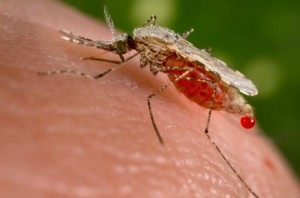TUESDAY, 29 NOVEMBER 2011
These findings come partway through a Phase III trial for the RTS,S vaccine, also known as Mosquirix. While the published data were gathered from only 6,000 children, the on-going trial considers a total of 15,460 children who are aged either 6-12 weeks or 5-17 months.The study found that 12 months after administering three doses of RTS,S one month apart, the risk of 5-17 month-old children developing clinical and severe forms of malaria decreased by 56 per cent and 47 per cent, respectively.
First made in 1987 by the pharmaceutical company GlaxoSmithKline, RTS,S contains a fusion of cell surface proteins from the malaria parasite and the hepatitis B virus. Recipients of the vaccine develop antibodies against the malaria parasite so that, if a mosquito bite introduces the parasite into the human bloodstream, the pre-formed antibodies prevent the parasite from maturing and multiplying in the liver. In the absence of such an immune response, the parasite would return to the bloodstream and infect red blood cells, causing fever, body aches and possibly death.
The Phase III trial still needs to establish how long protection lasts and how much the vaccine would cost. Complete results will become available in 2014, and the World Health Organisation has already indicated that the vaccine could be used in some African countries as early as 2015.
Written by Leila Haghighat

